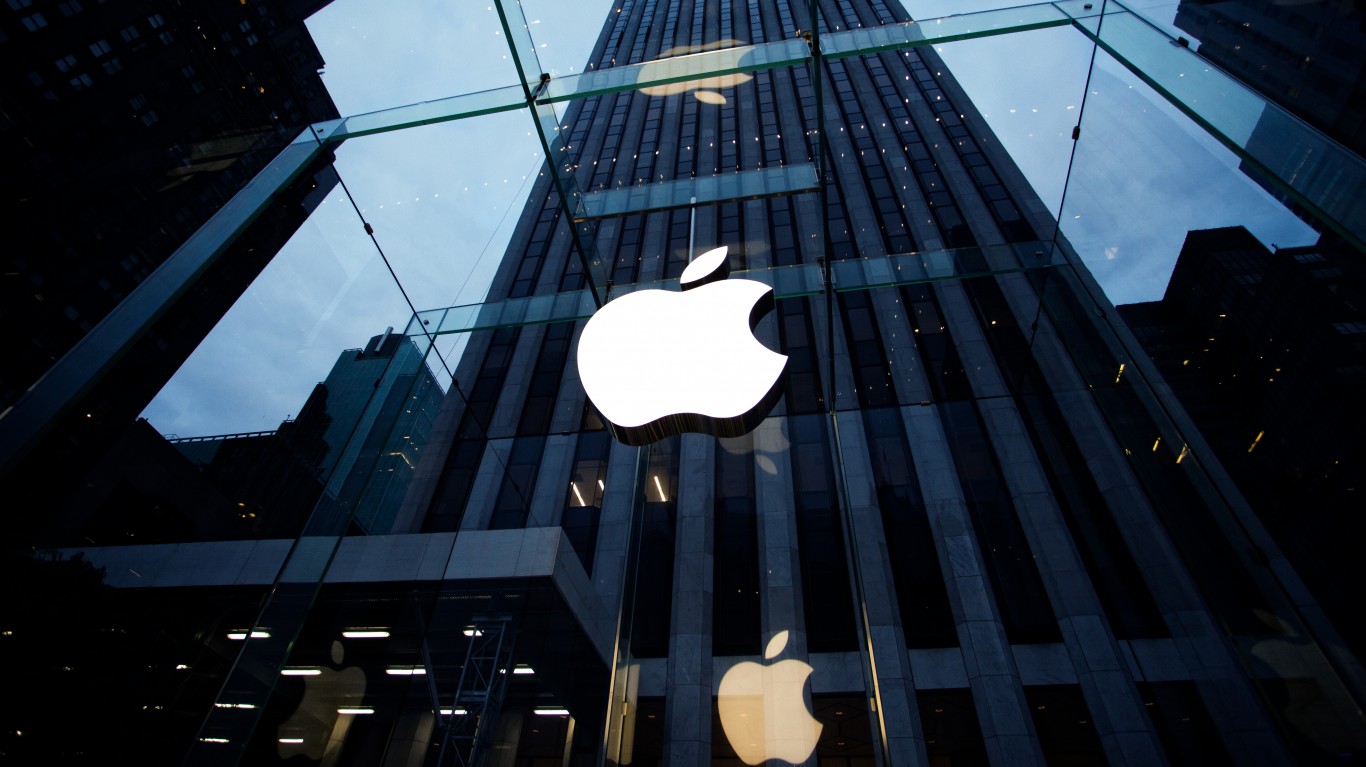Technology
What's Up With Apple: UK Blocks Lawsuit, Searching for Apple Car Builder, New Watch Study

Published:

The United Kingdom’s antitrust court ruled Monday that the dispute between Epic Games, maker of Fortnite, and Apple Inc. (NASDAQ: AAPL) will not be adjudicated in the United Kingdom. The game company also has sued Apple in the United States.
At issue is Apple’s requirement that developers pay Apple a 30% royalty on all sales from the App Store. Epic included its own in-app payment process when it released an update to Fortnite last August and Apple promptly dropped the game from the App Store.
In a statement, the game maker said that it “will reconsider pursuing its case against Apple in the UK after the resolution of the U.S. case.”
In a related matter, the U.K. tribunal did allow Epic’s suit against Google and the Google Play Store to proceed.
The Financial Times on Monday had a story on Apple’s search for a Japanese partner to build the rumored Apple Car. There are eight automakers in Japan, including heavyweights Toyota and Honda, and Apple reportedly has been talking to some of them since the Hyundai-Kia tie-up fell through.
Reports indicate that the company had discussions with Nissan but those talks went nowhere. Among the thorniest issues is branding. For an Apple Car to succeed in the market, the vehicle would have to carry the Apple brand. That is something an established automaker is unlikely to agree to.
The Financial Times cites some “outraged executives” who have bristled at the notion that they would have to become suppliers of “moving boxes” for Apple. The Apple Car, as is being rumored, would be a fully autonomous electric vehicle. Indeed, a moving box, but more like a motorized living room.
Japan’s automotive industry, according to the Financial Times, would take a big “psychological blow” if it were to become little more than a supplier to Apple. The country’s auto industry accounts for 20% of Japan’s gross domestic product, a larger share than the German auto industry’s share of that country’s GDP.
But this is business and psychology could take a back seat to survival: “Faced with an uncertain future, some [Japanese carmakers] may be attracted to Apple’s capital and branding strength that have the potential to take electric vehicles mainstream.” Japanese automakers have little presence in the EV market. Toyota and Honda, for example, have been pushing hydrogen-powered vehicles for years.
Toronto-based researchers are finally gearing up an academic study on the heart-monitoring function of Apple Watch. The study has begun enrolling participants in a 200-person study to determine “whether or not blood oxygen, mobility and other types of data collected through the smartwatch’s various sensors can inform earlier identification of worsening heart failure.”
The study’s lead investigator, Dr. Heather Ross, is cited by MobiHealthNews: “We think that biometric data derived from Apple Watch may provide comparable, precise, and accurate measurements of fitness, prognostic markers and early warning signals, compared to traditional diagnostics.” Early identification of a patient’s heart issues could lead to earlier intervention and treatment, thus saving lives.
Among the issues Apple Watch and other health monitoring devices have to face down is the problem of false positives. These are readings that indicate something is amiss and that the patient needs to see a doctor.
A Mayo Clinic study reported out last September indicates that the Apple Watch’s abnormal pulse detection feature may be leading to “unnecessary healthcare utilization.” Slightly more than 11% of patients who sought care following an abnormal reading were found to have “clinically actionable cardiovascular diagnoses of interest.”
Thank you for reading! Have some feedback for us?
Contact the 24/7 Wall St. editorial team.